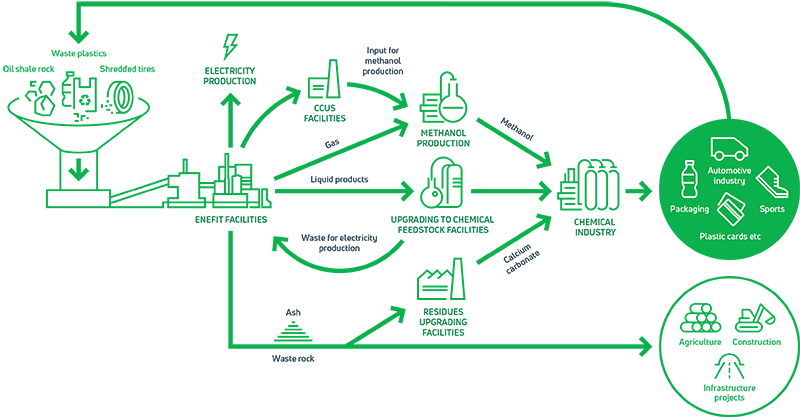News
The Environmental Board collects feedback from agencies on the environmental impact assessment report of Enefit Power's new plant
Enefit Power has submitted the environmental impact assessment report for the construction of the Enefit280-2 shale oil production facility to the Environmental Board. On Wednesday, the Board presented the document for comments to various ministries, agencies and local governments. The report will be made public to all interested parties after collecting feedback and making appropriate additions .
The environmental impact assessment report was prepared by an expert group from the environmental management consulting company Hendrikson & Ko on the basis of the program disclosed in the previous stage of the process and recognized as appropriate by the Environmental Board.
After collecting initial comments and opinions and completing the environmental impact assessment, the disclosure of the report will follow . All interested parties can then share feedback on the report. A public discussion will take place in this spring. The Environmental Board will inform interested parties of the time and place of disclosure.
"Completion of the environmental impact assessment report and subsequent public discussions are important stages in the construction and commissioning of the plant. We go through this journey for all major developments and activities," said Andres Vainola, Chairman of the Management Board of Enefit Power.
He added that the currently operational E280 and the new plant under construction use the best possible technology for the production of shale oil. However, the new plant is being built on even stricter environmental requirements than the previous one. The technology used in Enefit’s plants has been developed in cooperation with researchers from TalTech, as well as with engineers from Estonia and Germany. It is also the most environmentally friendly technology known in the world for refining oil shale.
"In order to reduce CO2 emissions, we and TalTech researchers have analyzed two technologies with the greatest application potential to be used to captureCO2 generated in E280 plants," Vainola said.
The construction of the new plant is in accordance with the development documents of the country's energy and climate policies. It also meets the expectations of the owner of Eesti Energia, updated in August 2022, which foresees a gradual transition from electricity production to the co-production of fuels, chemical products and electricity for the valorization of oil shale in order to increase its energy and emission efficiencies.
The Enefit280-2 environmental impact assessment process was preceded by the preparation of a detailed plan for the entire Auvere complex and a strategic environmental impact assessment, the latest of which was approved by the Ministry of the Environment in August 2019.
The new plant plays an important role in the development of the oil shale industry into a circular economy-based chemical industry, as it enables the use of alternative raw materials, such as waste tyres and non-recyclable plastic waste, in addition to oil shale in the production of fuels and chemical products. After post-processing, they can be used again to make materials and objects necessary for everyday life. A development perspective based on a true circular economy will also make the industry in Ida-Virumaa sustainable.
Oil shale and products created from its valorization will no longer be used in energy after 2040. In other words, the burning of oil shale and products made from it will end, but existing and future jobs based on the circular economy that create high added value for Estonia will remain.
After the planned start-up in 2024, the plant will create a total of approximately 500 direct and indirect jobs in Ida-Virumaa.

Eesti Energia's planned chemical industry scheme based on a carbon-free circular economy
Read more about the carbon-free chemical industry plan being developed by Eesti Energia at https://www.energia.ee/en/ari/toostuslahendused/keemiatoostus